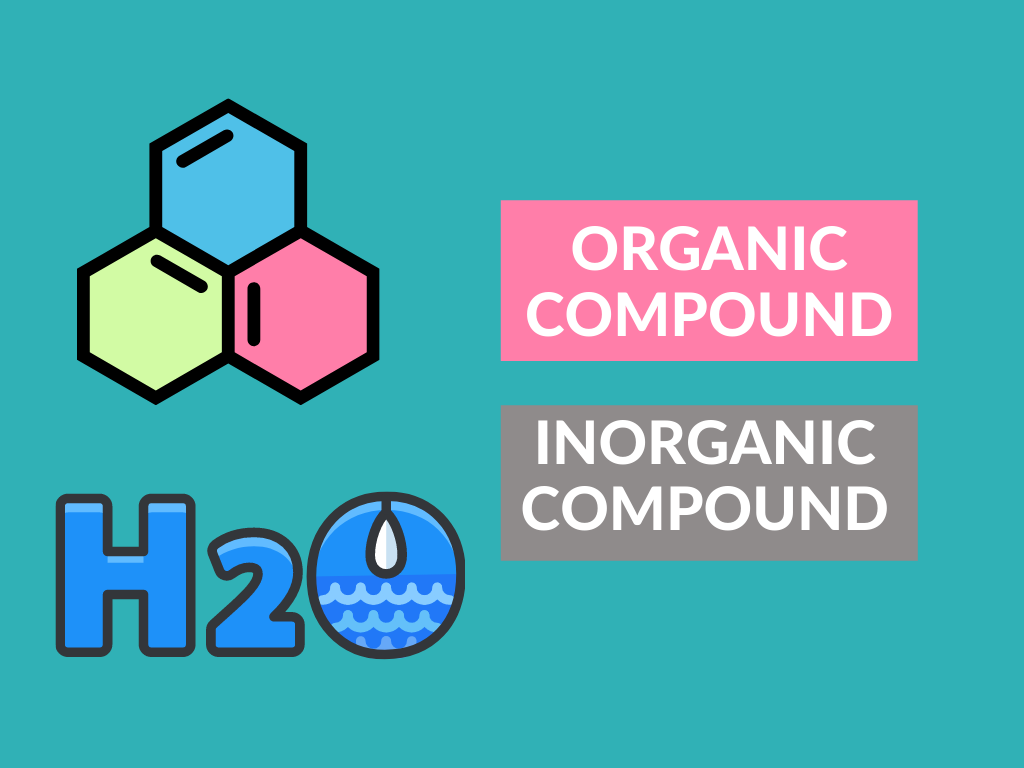What Is A Compound?
A compound is a substance formed by chemically bonding two or more different elements or atoms. The bonding can be either ionic or covalent type.
Example: sodium chloride (ionic compound), water (covalent compound).
Types Of Compounds
Generally, compounds are of two types based on chemical composition. They are
- Organic compound
- Inorganic compound
What Is An Organic Compound?
An organic compound is a class of chemical compounds that contains carbon, hydrogen, and other atoms. It is also known as hydrocarbons (compounds which contain carbon-hydrogen bond).
A million organic compounds are known till now. These organic compounds are the main components of living beings. In the carbon cycle and photosynthesis, the conversion of inorganic compounds to organic compounds like simple sugar occurs. Most of the synthetically produced organic compounds are from Petrochemicals mainly hydrocarbons.
The basic properties of carbon leads to formation of large number of organic compounds. these properties are
- Tetravalency
- Catenation (formation of chains with other carbons)
- The small size of carbon.
What Is An Inorganic Compound?
An inorganic compound is also a class of chemical compounds that do not contain carbon in most cases and which do not have any carbon-hydrogen bond in it. Most of the inorganic compounds are present in the earth’s crust.
Some simple carbon-containing compounds like carbon dioxide, carbon monoxide, carbides, cyanides, etc., are considered inorganic compounds.
Differences Between Organic and Inorganic Compound
| Organic Compound | Inorganic Compound |
|---|---|
| Definition | |
| An organic compound is defined as the class of chemical compound which contains carbon, hydrogen, and oxygen. | An inorganic compound is defined as a class of chemical compounds that do not contain any carbon-hydrogen bond. |
| Solubility | |
| Organic compounds are soluble in organic solvents and insoluble in water. | Inorganic compounds are soluble in water and insoluble in organic solvents. |
| Melting and boiling points | |
| Organic compounds have low melting and boiling points. | Inorganic compounds have high melting and boiling points. |
| Catenation | |
| Due to the presence of carbon, catenation is exhibited. | No catenation is exhibited by inorganic compounds. |
| Isomerism | |
| Organic compounds exhibit isomerism. | Inorganic compounds don't exhibit isomerism. |
| Rate of reaction | |
| A slow rate of reaction can be seen in organic compounds. | A high rate of reaction can be seen in inorganic compounds. |
| Flammability and volatility | |
| Organic compounds are flammable and highly volatile. | Inorganic compounds are not flammable and non-volatile. |
| Color | |
| Most organic compounds are colorless. | Most inorganic compounds are colorful. |
| Bonding | |
| Organic compounds form covalent bonds. | Inorganic compounds form ionic bonds. |
| Conductance of heat and electricity | |
| In an aqueous solution, organic compounds act as poor conductors of heat and electricity. | In an aqueous solution, inorganic compounds act as good conductors of heat and electricity. |
| Complexity | |
| Organic compounds are biological and more complex in nature. | Inorganic compounds are not complex and are minerals that exist in the earth's crust. |
| Making of Salts | |
| Organic compounds can't make salts. | Inorganic compounds can make salts. |
| Examples | |
| Facts, nucleic acids, sugars, enzymes, proteins, etc. | Nonmetals, salts, medals, acids, bases, etc. |
Conclusion
The major difference between organic compounds and inorganic compounds is that the organic compounds are mostly made up of hydrocarbons but inorganic compounds didn’t have any carbon-hydrogen bonding. The other properties like conductance, flammability, volatility, solubility, etc., will also differ because of the difference in the chemical composition.


